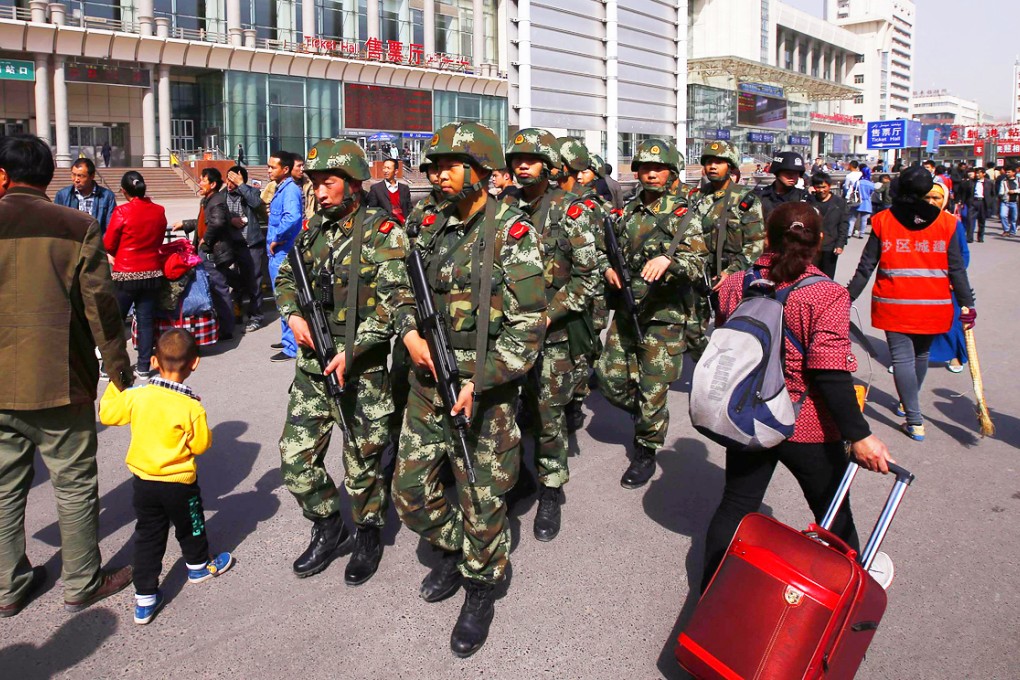China narrows terrorism definition by deleting ‘thought’ from list of crimes
But 'speeches' could still qualify as offence if draft law gets legislature's backing

Beijing has narrowed the controversial definition of "terrorism" in the revised draft of its counterterrorism law by removing a reference to "thought" as a crime.
But it still proposes that certain "speeches" qualify as terrorism offences.
The draft is before the Standing Committee of the National People's Congress (NPC), which began its two-monthly session yesterday.
Su Zelin, deputy director of the committee's legislative affairs commission, said "thoughts" had been dropped "for the sake of accuracy and applicability", Xinhua reported.
According to the new draft, terrorism is defined as "any speech or activity that, by means of violence, sabotage or threat, generates social panic, undermines public security, and menaces government organs and international organisations".
Concerns over human rights were raised in November when the NPC called for public feedback on the drafts of both the counterterrorism law and changes to the criminal law.
Liu Renwen, a criminal law expert at the Chinese Academy of Social Sciences, said it was inappropriate to include thoughts and speeches in the definition.